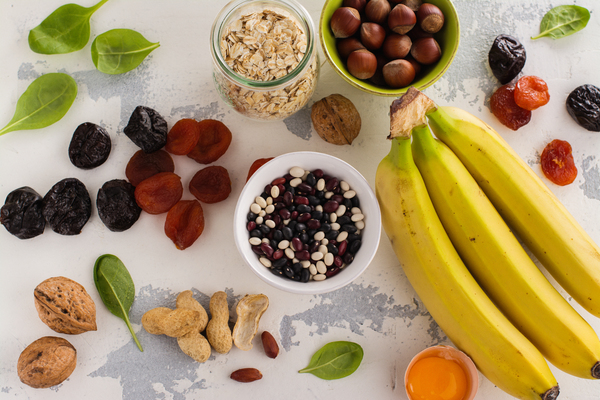Potassium plays an important role in the health of every cell in the human body. Especially, the cells that make up heart muscle tissue.
Don't get enough potassium and it will have a serious impact on your body's ability to function. It could even cause fatigue and muscle cramps.
About 98 percent of the potassium present in the human body is found in cells, which means that even small changes can have devastating consequences on the nerves, muscles, and heart.
And that's why it's important that we help spread this information so that more people can learn to detect the symptoms of low potassium levels in the body.
Here are six warning signs that everyone should know:
1. Constipation
A lack of potassium can have a major impact on many body systems, including the digestive system, where it can cause stomach bloating and cramps.
Keep in mind, however, that low potassium isn't the only cause of gastrointestinal disorders—so be careful about eating foods that make your stomach bloat.
2. Muscle weakness
Muscle pain, weak muscles, and muscle cramps can be a sign that the body needs more potassium, writes Women's Health Magazine.
3. Heart palpitations
As mentioned above, potassium deficiency has a big impact on the heart. Heart palpitations and abnormal heart rhythms can be the result of not getting enough potassium.
When your potassium balance is disturbed, the heart struggles to pump blood and the heartbeat becomes weak or irregular.
Therefore, be sure to get enough potassium and protect yourself from heart disease and myocardial infarction.
4. Fatigue
If you feel tired even though you've slept well, then potassium deficiency might be the cause, according to the Mayo Clinic.
Every cell in your body needs potassium, but when potassium levels drop, your physical and mental energy may be affected, writes nutritionist and expert Jill Brill.
5. Numbness and tingling
Potassium is an important mineral that promotes a healthy nervous system. So if you aren't getting enough, you may experience pins and needles or numbness, according to Womens Health.
6. High blood pressure
Potassium helps widen blood vessels. But without enough of it, they contract. This, in turn, causes blood pressure to rise.
Most people don't notice when their blood pressure rises, but in some cases it can cause a headache.
How to avoid potassium deficiency
With so many potassium-rich foods available, there's no need to take potassium supplements. Instead, increase your intake of fruits, vegetables, and juices.
Potassium deficiency often occurs when you eat too much fast food and keep a low-energy diet. Eating too much salty food and not enough fruits and vegetables can also lead to a potassium deficit.
Foods that contain a lot of potassium:
* Bananas
* Dairy products (especially milk and yogurt)
* Root vegetables and nuts
* Fish
* Mushrooms
* White beans and soybeans
* Avocados
Fuente: en.newsner.com
